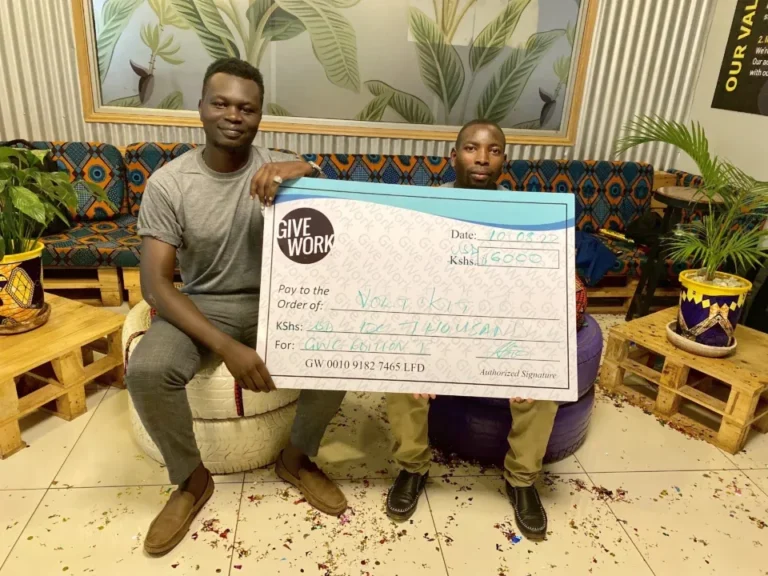Kenya’s Mvuvi and Kono Farm have emerged among the winners at the sixth annual Leila Janah Foundation Give Work Challenge (GWC) for existing businesses. Other winners include Mawejje Creations (Uganda) and The Reusable Sanitary Pad Project (Uganda). The Leila Janah Foundation (LJF), is a non-profit organization supporting entrepreneurs in East Africa.
Each of the four companies will receive one year of mentorship and a grant of $6,000 USD to continue building their businesses and impacting their communities. The GWC is the Foundation’s primary execution of its mission to alleviate poverty and create new opportunities for entrepreneurs in East Africa by creating new work opportunities.
The LJF is the primary shareholder of Sama, the leader in providing data annotation solutions that power the AI models of the future. Both entities take their mission from Leila Janah, who founded Sama in 2008 on the belief that talent is equally distributed, but opportunity is not. In its early inception, Sama received a major boost from a grant and since then has helped more than 65,000 people lift themselves out of poverty.
The GWC aims to recreate that boost. Since its establishment in 2018, it has awarded more than $200,000 USD in grant money to 37 ventures, which have created 322
jobs for previously unemployed youth to enter the formal economy, supporting economic growth in Kenya and Uganda.
Based in Kenya, Mvuvi, named for the Swahili for fisherman, produces high-quality processed fish while reducing waste and environmental pollution in Lake Victoria by converting fish waste into animal feed, fertilizer and energy. Kono Farm is promoting sustainable snail agriculture as both an alternative protein source as well as an ingredient for skincare.
Arnold Adero, founder of Mvuvi, said, “Mvuvi applied for the LJF’s GWC because it resonates deeply with our mission to empower marginalized individuals through meaningful opportunities. Winning the fund fills us with immense gratitude and excitement, as it fuels our commitment to creating a lasting impact and driving positive change in the fisheries and aquaculture community.”
In Uganda, Mawejje Creations leverages both plant-based fibers and textile waste to create fashionable clothing and is providing young people in the community with the skills to become job creators, not seekers. Finally, The Reusable Sanitary Pad Project is a social enterprise aiming to keep girls in school and empower young mothers through jobs to make and distribute reusable sanitary pads and education on menstrual health.
Each GWC consists of a three-round competition, where entrepreneurs from Kenya and Uganda submit their business plans and information to a jury made up of Sama volunteers from East Africa and North America. Entrepreneurs who make it to the final round pitch live to a regional judging panel of volunteer seasoned entrepreneurs from Kenya and Uganda.
“The Give Work Challenge is a movement that displays the powerful will of women and youth in East Africa to create decent work opportunities for their communities and play a role in global economic and gender empowerment. Through the GWC grant and mentorship, each of our winners will have a larger impact on their communities that will ripple out and positively impact many more individuals,” said Liliosa Mbirimi, Program Director at the Leila Janah Foundation. “We are proud to continue the mission of our namesake, Leila Janah, to alleviate global poverty by giving work, not handouts.”
The LJF also runs a GWC for new businesses in ideation, stealth or operating for less than 12 months at the time of application. In February 2023, four businesses were each awarded $4,000 USD in grant funding; a $1,000 incubator membership and training and mentorship for one year.

